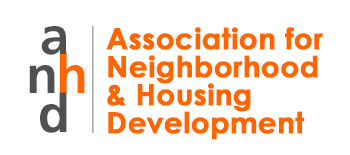New Rules For Mortgage Disclosure:a Step Forward for NYC
Transparency in lending data is a bedrock principal of bank regulation that protects consumers. Last week, the Consumer Financial Protection Bureau (CFPB) finalized a strong set of rules to improve HMDA. ANHD has been especially vocal in calling for the closure of a loophole that excluded many NY State loans made from disclosure in the Home Mortgage Disclosure Act (HMDA) database. We applaud the CFPB for responding to ANHD’s concerns by, for the first time, requiring NY CEMA mortgages to be reported under HMDA.
HMDA was passed in 1975 after the community development and civil rights movements worked together to shine a light on discrimination against communities of color, a practice known as “redlining.” Today, HMDA is still one of the most important tools we have to analyze the home mortgage market in order to better understand who is, and isn’t, getting access to credit and identify patterns of discrimination prohibited by the Fair Housing Act.
Advocates have long recognized that the rules can be even stronger and were pleased that the Dodd Frank Act of 2010 mandated a number of improvements to HMDA and offered latitude for others. ANHD played a leading role in encouraging regulators to close a disclosure loophole that left out a major class of mortgages particular to just a few states and very prevalent in New York. ANHD is pleased with the CFPB’s actions, particularly to see that for the first time ever, the rules require disclosure of these mortgages, known locally as the “NY CEMA” and elsewhere as CEMAs or MECAs. These CEMA mortgages make up a significant part of the mortgage activity in New York City, especially refinance loans, but because of how they are structured, most were not previously HMDA-reportable. The new HMDA rules correct this problem, and now better capture the totality of lending in New York State. The new rules also expanded data on multifamily lending that takes a step forwards towards better understanding this important segment of the housing market.
Under the original HMDA legislation, most lenders were required to disclose a wide range of information regarding their mortgage lending, including data on the property financed (1-4 family, multifamily, manufactured housing), the purpose of the loan (home purchase, refinance, home improvement), the location of the property (census tract, including median income level and demographics), and if the loan was a “high-cost” or subprime loan. HMDA also included data on the race, ethnicity, income, and gender of each applicant and co-applicant.
We are very pleased that the final rules include the CEMA loans, and also that they include additional and expanded data on home equity loans, home equity lines of credit, reverse mortgages, and manufactured housing; new data on underwriting criteria, such as debt to income ratios, credit scores, and improved disclosure of loan terms and pricing; and disaggregated race and ethnicity information that better reflects the diversity within the Hispanic, Asian, and Native Hawaiian / Pacific Islander populations. We are disappointed that the threshold for reporting to HMDA still depends upon a lender making at least one 1-4 family loan, thus excluding multifamily lenders that do not make 1-4 family loans.
We are still reviewing the final rules, but overall the CFPB’s process was very thoughtful and thorough and reflects a huge step forward in the amount and quality of data to be collected. We urge the CFPB to be equally thoughtful in the timely public release the new data as soon as, possible without compromising the privacy of borrowers; we believe most of the data can and should be made public. It offers an incredibly opportunity to hold banks accountable for the lending they do in our communities, particularly to lower-income and minority borrowers and communities.
Blogger:
Jaime Weisberg, Senior Campaign Analyst
Blog team: Benjamin Dulchin, Lena Afridi, Armando Chapellquen, Jonathan Furlong, Moses Gates, Emily Goldstein, Ericka Stallings, Jaime Weisberg, Barika X. Williams. Editor, Anne Troy.
 ANHD 2016 Building the Community Development Movement
ANHD 2016 Building the Community Development Movement
